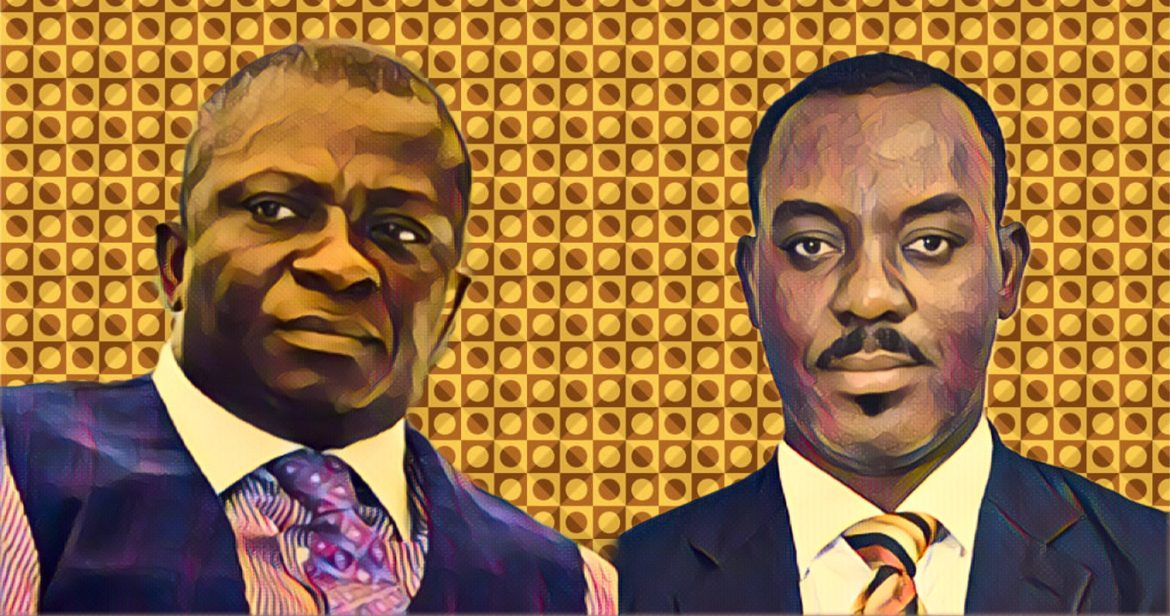A recent statement made by Bryan Acheampong, Ghana’s Minister for Food and Agriculture, has ignited serious concerns among security experts. Acheampong, who is also a Member of Parliament for the Abetifi Constituency, declared that the ruling New Patriotic Party (NPP) would use “every means” necessary to win the 2024 general elections. His comments have drawn sharp criticism from Security Policy Expert Anthony Acquaye, who cautioned that such rhetoric could lead to significant unrest in the country.
In a statement, Acquaye expressed alarm over the potential consequences of Acheampong’s remarks, emphasizing that any attempt to manipulate the upcoming election could provoke widespread resistance from the Ghanaian people. He warned that Ghanaians are determined to ensure that their voices are heard in the 2024 elections and will not tolerate any actions that undermine the democratic process.
“Beneath this calm exterior lies a simmering resolve,” Acquaye said, referring to the Ghanaian populace. “If the ruling party or any political actor tries to subvert the will of the people—whether through the electoral commission, military, police, or judiciary—it could ignite civil unrest far more intense than what we saw in Kenya during their election violence.”
Acquaye highlighted that the 2024 elections are a critical moment for Ghana, with many structural and circumstantial factors at play. He pointed out that any move to artificially raise political tensions or use state power to cling to control could lead to chaos. “The warning is clear,” he said. “Attempts to manipulate the electoral process, suppress voter turnout, or ignore the people’s verdict will be met with swift and decisive action.”
He also urged international organizations such as the United Nations (UN) and the African Union (AU), as well as local traditional and faith-based groups, to closely monitor the situation in Ghana as the election date approaches. Acquaye called on all stakeholders, including the Electoral Commission of Ghana, to conduct their duties with the utmost integrity and fairness to maintain peace and stability in the country.
“The stability of Ghana is fragile,” Acquaye warned. “Any disrespect for the citizens’ political will could have far-reaching consequences, not just for Ghana but for the entire region.”
Acheampong’s remarks have been met with concern due to the implications they carry for the democratic process in Ghana. During a recent campaign tour in Nsawam, in the Eastern Region, Acheampong confidently declared that the NPP would not hand over power to the opposition National Democratic Congress (NDC) under any circumstances. He reaffirmed his party’s determination to win the 2024 elections by any means necessary, stating that the NPP, with the support of its members—including pastors, Imams, and traditionalists—would do whatever it takes to secure victory.
This is not the first time Acheampong has made such controversial comments. In March 2024, during an address to party supporters in Mpraeso, he made similar remarks, asserting the NPP’s intention to hold onto power regardless of the opposition’s efforts.
Acquaye’s response serves as a reminder of the potential dangers of such rhetoric, particularly in a country with a strong tradition of democracy. He emphasized that Ghanaians are prepared to take to the streets if they feel their political will is being disrespected, and that any attempt to provoke conflict could have unpredictable and devastating outcomes.
As Ghana approaches its December 2024 general election, the tension between the ruling party and the opposition is likely to increase. Security experts like Acquaye are urging caution and calling for a commitment to fair play from all political actors. The focus, they argue, should be on ensuring a free, fair, and transparent election that reflects the true will of the Ghanaian people.
The international community, as well as local leaders, are being urged to take these warnings seriously and to work towards preventing any escalation of conflict. The stakes are high, and the consequences of ignoring these warnings could be dire for Ghana’s democracy and stability.
The comments made by Bryan Acheampong have set off alarm bells among those concerned with maintaining peace and democracy in Ghana. As the country prepares for its next election, the emphasis must remain on protecting the integrity of the electoral process and respecting the will of the people. Any deviation from this path could lead to unrest, with potentially severe consequences for the nation and the region as a whole.
Source: Ghana Web




